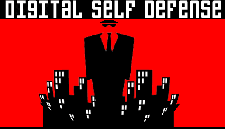
|
 |
|||
|
Black Hat USA Training 2006 |
|
Automating Exploit Detection: |
||||||||
|
Matt Hargett & Luis Miras |
||||||||
|
What to Bring: Windows users, we will be requiring .NET 2.0 and SharpDevelop 2.0. Students' laptop(s) should also be able to copy files from a USB storage device. |
Overview: Day One: Optimizing exploit discovery with best practices and free tools Day Two: Creating Automated Tools for optimizing exploit discovery. Prerequisites: There are some coding aspects to the class that students are not required to participate in and will be fully explained by the instructor. Users should have mono 1.1.16 or newer (http://www.mono-project.com) installed on their Windows, Linux, or MacOS X laptop(s) for the coding aspect of the class if they want to participate. Participation in coding is not required. Windows users, we will be requiring .NET 2.0 and SharpDevelop 2.0. Students' laptop(s) should also be able to copy files from a USB storage device. |
|||||||
|
Trainer:
|
Matt Hargett has over 8 years of experience in various aspects of network and application security, from managing product development to finding a broad range of exploitable bugs inoperating systems and applications. Most recently, he created the product BugScan which analyzed binaries for, and found several, novel exploitable security vulnerabilities. He is now working to educate security researchers and practitioners on applying public research and information toward building and evaluating static analysis tools and products. Luis Miras is the lead vulnerability researcher at Intrusion Inc. He has done work for leading consulting firms. and Network Associates. He released the first public polymorphic shellcode at Defcon 8 and has also spoken at Toorcon 7 as well as the CCC Congress (17c3) in Berlin. In the past he has worked in digital design, and embedded programming. |
|||||||
|
Course Length: Two days. All course materials, lunch and two coffee breaks will be provided. A Certificate of Completion will be offered. You must provide your own laptop.
|
||||||||
|
(c) 1996-2007 Black Hat
|
